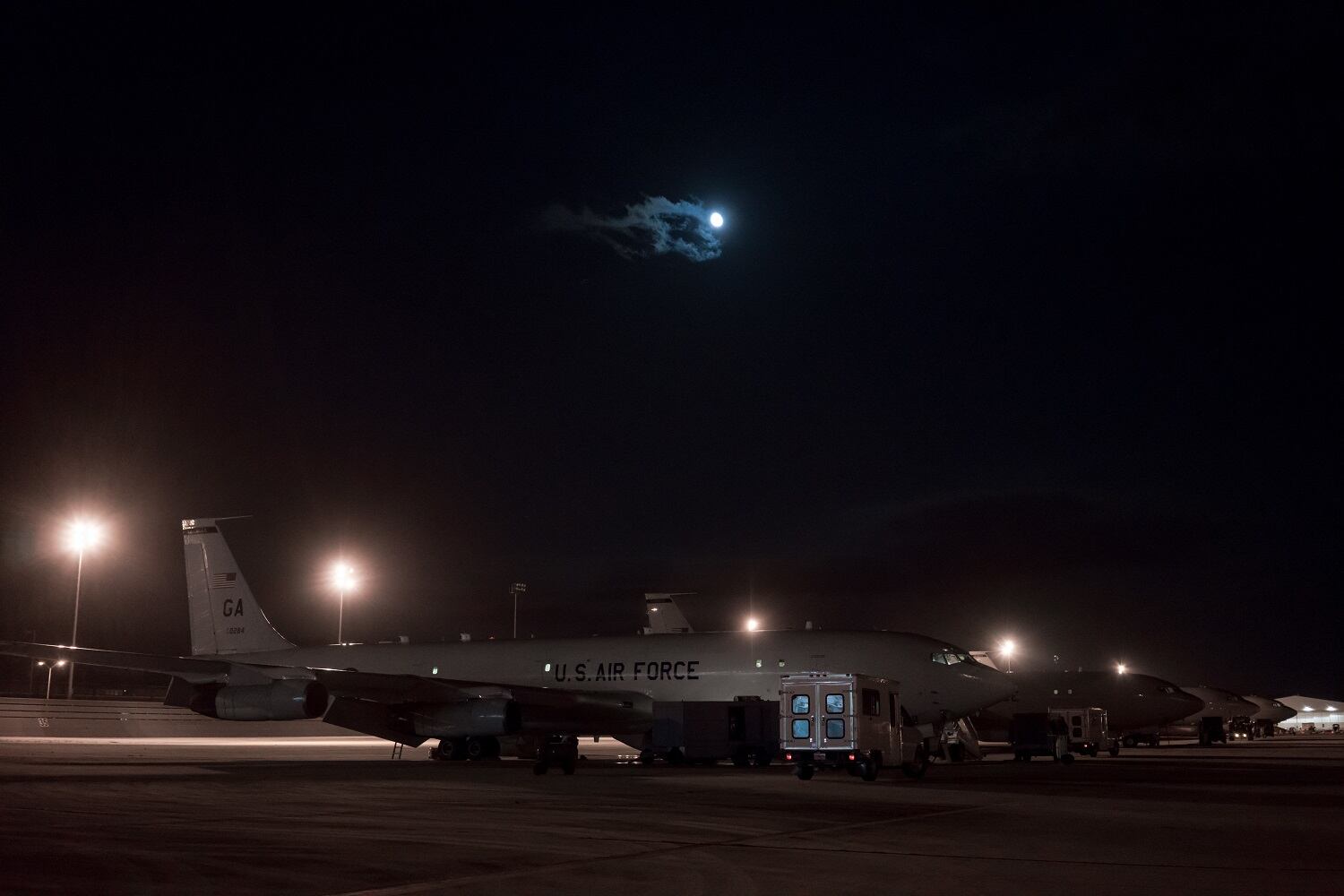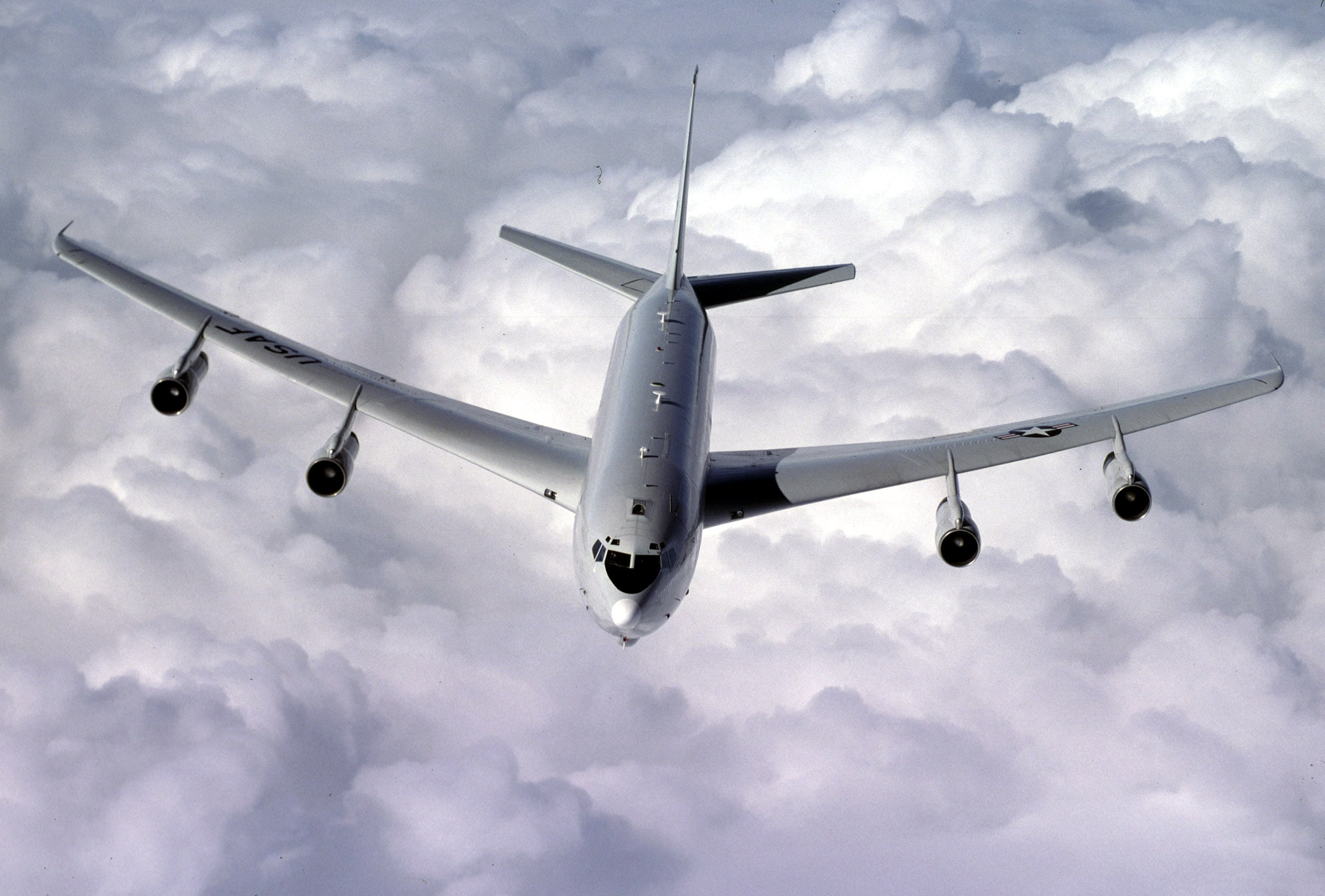WASHINGTON — Raytheon is officially out of the Air Force’s JSTARS recap contest, leaving Northrop Grumman victorious as the radar provider to one of the three primes competing for the contract.
The Government Accountability Office on Dec. 28 dismissed Raytheon’s initial protest, filed on Nov. 20, as well as two supplemental protests filed Dec. 11 and 18, the GAO docket shows. Raytheon’s protest was both surprising and unusual, as the Air Force has not publicly announced or confirmed its downselect decision for the JSTARS recap radar.
As of Jan. 8, the GAO’s decision remains under protective order, and a representative from the agency could not immediately be reached for information on the decision. An unclassified version of the decision will be released in a few weeks, an Air Force spokeswoman confirmed.
Raytheon had offered its Archimedes radar for the JSTARS recap, the planned follow-on to the E-8C Joint Surveillance Target Attack Radar System ground surveillance aircraft. Companies vying for the prime contract spot — in this case Boeing, Lockheed Martin and Northrop — were permitted to submit two proposals: one with Raytheon’s Archimedes and another with a radar manufactured by Northrop.
RELATED

While companies are not allowed to appeal GAO decisions, Raytheon could take its case to the U.S. Court of Federal Claims.
A spokesman for Raytheon said the company is currently exploring its legal options and declined to comment on the decision, citing the protective order.
The GAO’s ruling is a major win for Northrop, ensuring the company will play a major role on the JSTARS recap program even if it loses the prime contracting spot. However, the Air Force is currently reconsidering whether the current recap program is the best strategy to replace the E-8C fleet and plans to make a final determination in the fiscal year 2019 budget, meaning that Northrop’s victory may be short lived if the program is ultimately canceled.
RELATED

Raytheon and Northop were both awarded contracts in 2016 to mature their radar and scale their designs for a business-jet sized aircraft. Northrop was given $70 million and Raytheon got $60 million for risk reduction activities.
Since the protest was filed, the Air Force has remained mum on why it seemingly chose Northrop over Raytheon, and the service has refused to confirm whether it had made a final source selection decision regarding a JSTARS recap radar.
“We are in source selection, and we don’t comment on these things while that source selection is going,” Lt. Gen. Arnold Bunch, the Air Force’s top uniformed acquisition official, said in early December. “We will allow that process to play out.”
Asked why the Air Force would choose a radar provider before choosing a prime contractor, Bunch refused to speak specifically to JSTARS, but added, “On multiple source selections, there are a variety of different things that you can look at and make decisions on how you want to go forward. So what I would say is, we need to let the source selection play out. We need to let the protest that has been filed to play out, and then as that plays out more, then we’ll be able to make more comments.”
The JSTARS recap program is worth about $6.5 billion and includes 17 aircraft to replace the E-8C fleet. The Air Force is expected to downselect to one competitor and award a contract for the engineering, manufacturing and design phase in fiscal year 2018.
Valerie Insinna is Defense News' air warfare reporter. She previously worked the Navy/congressional beats for Defense Daily, which followed almost three years as a staff writer for National Defense Magazine. Prior to that, she worked as an editorial assistant for the Tokyo Shimbun’s Washington bureau.








